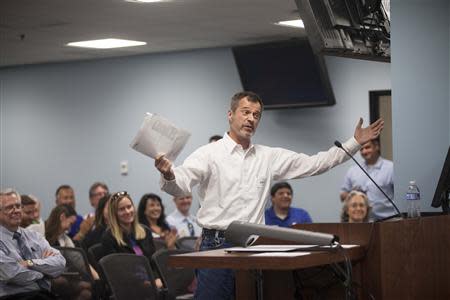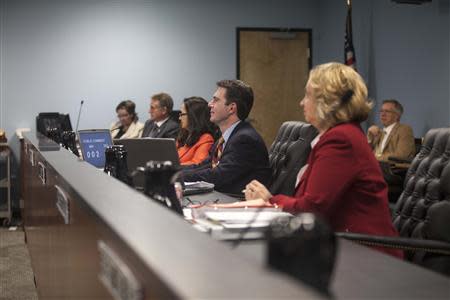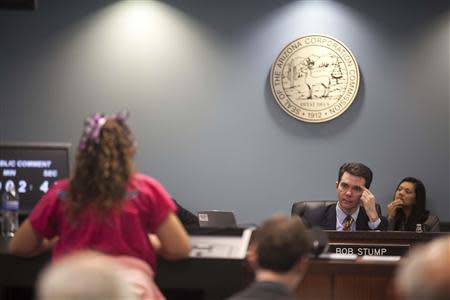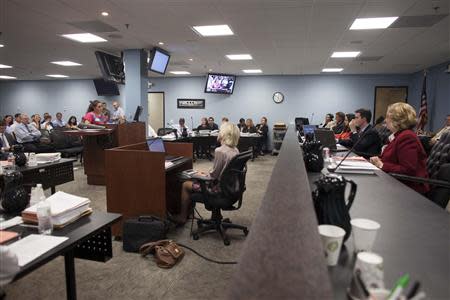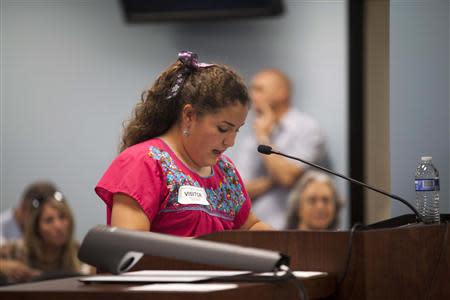Arizona sets precedent for solar systems with new monthly fee
By Nichola Groom (Reuters) - Arizona on Thursday dealt a blow to the state's largest utility by approving a monthly fee on customers with solar panels that Arizona Public Service said was not enough to offset the costs that those rooftop systems have heaped on its remaining ratepayers. The measure, approved by the Arizona Corporation Commission in a 3-2 vote, was intended to serve as a compromise between APS and the solar industry, which had fought to stop the utility's efforts to change a solar incentive that has buttressed the rapid growth of rooftop systems in one of the nation's sunniest states. The fee of 70 cents per kilowatt would equate to about $5 a month for the average solar customer in Arizona - an amount the solar companies at the hearing said they could live with. The charge will only apply to customers who install solar systems after December 31 of this year, meaning the 20,000 APS customers who already have solar panels will not see changes to their bills. The debate over the little-known solar subsidy called net metering was being watched closely by utility and solar players far beyond the Grand Canyon state. The two industries are increasingly at odds over allowing homeowners with rooftop solar systems to sell the power they don't use back to their utilities at retail rates. Rhone Resch, the head of the U.S. solar trade group, the Solar Energy Industries Association, said in a statement following the vote that he was "deeply troubled by today's precedent-setting action," while at the same time applauding the decision to allow customers to continue selling unused solar power back to the utility. Arizona is considered to be the biggest battleground on the net metering debate, and APS spent $3.7 million on lobbying and advertising efforts leading up to the net metering hearing. Because of net metering, solar customers can end up with a credit on their utility bills at the end of the month. Typically, however, they still pay some amount to their local utility. Throughout the proceedings, APS argued that net metering allows solar customers to avoid paying their fair share of the cost to maintain the electric grid - thereby passing $18 million in annual costs onto non-solar customers. The issue has come to a head recently because of the dramatic recent growth in rooftop solar. Systems are being added to APS' service territory at a rate of about 500 a month, said APS, a unit of Pinnacle West Capital Corp. Arizona was the nation's No. 2 state for solar installations in the second quarter of this year. Company representatives at the hearing said a charge of 70 cents a KW was not nearly enough. "We are very concerned with the cost impacts of this policy," APS' senior vice president of customers and regulation, Jeff Guldner, told the Commission ahead of the vote. "We don't think this proposal is in the best interest of our customers." The compromise was hammered out between representatives for the solar industry and the state's ratepayer advocate, the Residential Utility Consumer Office, during the hearing on Thursday in Phoenix. APS, however, never agreed to the terms. The Alliance for Solar Choice, which represented a coalition of solar financing and installation companies including SolarCity Corp, Sunrun and Sungevity, had initially pushed for any decision to be delayed until APS' next rate case in 2015. In the end, however, the solar companies decided that they could still be competitive with a monthly charge of 70 cents a KW. The average size of a solar system in Arizona is 7 to 8 KW. Still, Bryan Miller, vice president of public policy and power markets at solar financing company Sunrun, testified during the hearing that even a $5-a-month charge would eliminate the ability of some customers to save money by leasing solar panels. He estimated that solar leasing companies, which dominate the market in Arizona, are able to save their customers between $5 and $10 a month, on average. (Reporting by Nichola Groom in Los Angeles; Editing by Richard Pullin and Lisa Shumaker)

